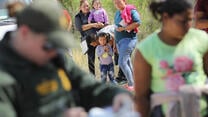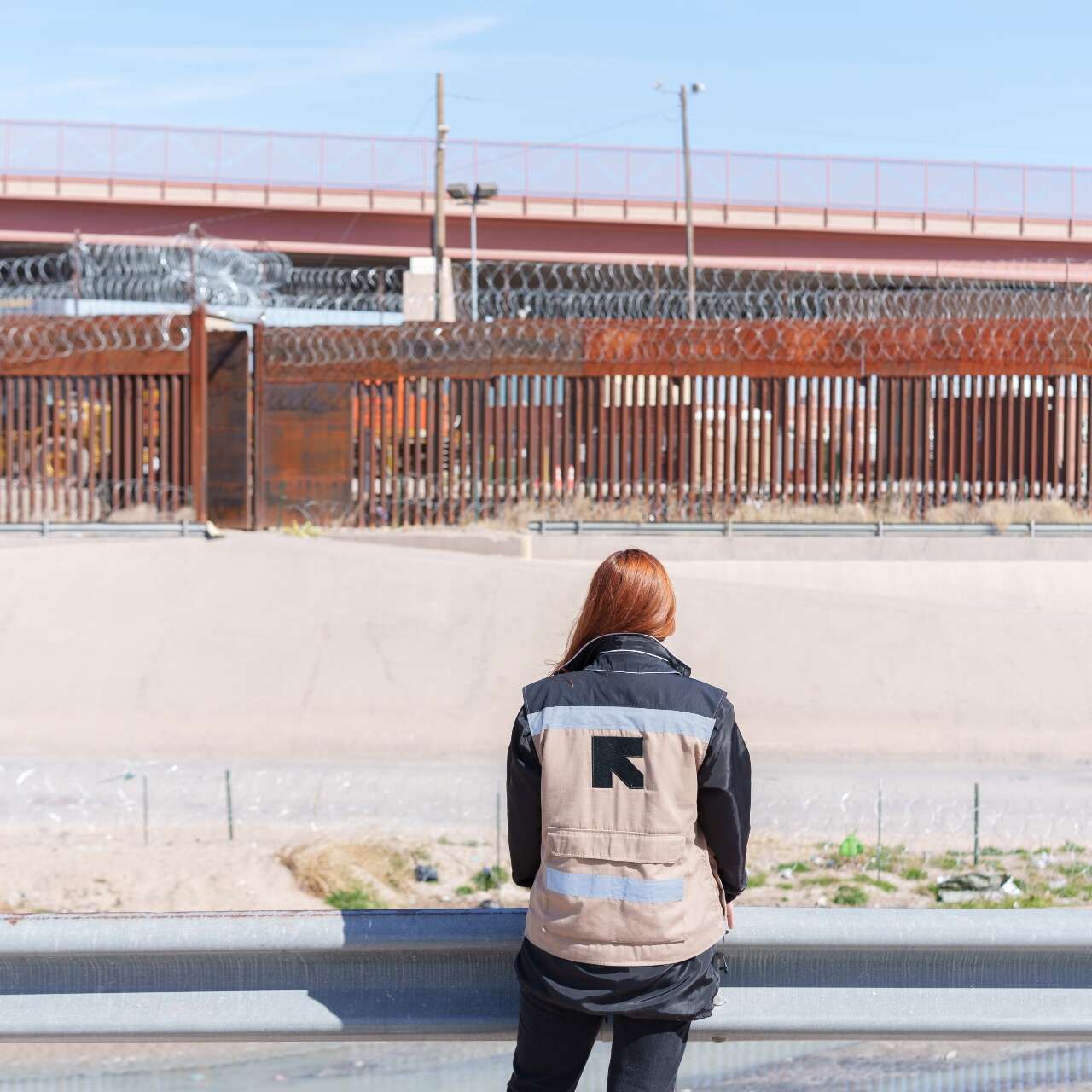
Families escaping violence and persecution in their home countries often undertake a dangerous journey to seek safety in the United States. Many are fleeing severe humanitarian crises in Latin America, the Caribbean, Afghanistan and parts of Africa.
Here’s how the process should work:
What is asylum?
Asylum is a form of protection granted to individuals who can demonstrate that they are unable or unwilling to return to their country because of a well-founded fear of persecution on account of:
- race,
- religion,
- nationality,
- membership in a particular social group,
- or political opinion.
The right to seek asylum was incorporated into international law following the atrocities of World War II. Congress adopted key provisions of the Refugee Convention (including the international definition of a refugee) into U.S. immigration law when it passed the Refugee Act of 1980.
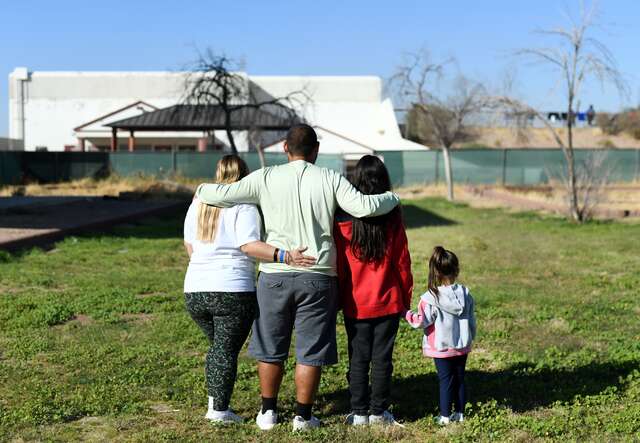
Who is an asylum seeker?
An asylum seeker is someone who has fled their home in search of safety and protection in another country. Because they cannot obtain protection in their home country, they seek it elsewhere. Asylum seekers may be of any age, gender, socio-economic status or nationality—though the majority come from regions of the world that are suffering from conflict, disaster and weak rule of law.
“Asylee” is the term used in the U.S. for people who have been granted asylum. Under U.S. immigration law, a person granted asylum is legally allowed to remain in the country without fear of deportation. They qualify to work and travel abroad and can apply for their spouse or children under the age of 21 to join them. Asylees have the opportunity to become permanent residents, and eventually, citizens, provided that they meet all other requirements.
To be granted asylum, one must meet the definition of a refugee. However, international law recognizes that the refugee status determination process can be lengthy and complex. Therefore, asylum seekers should receive certain protections before a state has officially recognized them as refugees. Asylum seekers begin their process either at the U.S. border or within the U.S.
"A refugee is inherently a refugee even if a government hasn’t yet made that determination," says IRC senior director for asylum and legal protection Olga Byrne. "If you meet that definition and you’re fleeing danger, you should not be penalized for your manner of entry, and you should not be turned away at the border to a country where you’d face persecution."
Is seeking asylum legal?
Yes, seeking asylum is legal. Asylum seekers must be in the U.S. or at a port of entry (an airport or an official land crossing) to request the opportunity to apply for asylum.
"There’s no way to ask for a visa in advance for the purpose of seeking asylum,” says Byrne. “You just have to show up.”
However, the Trump and Biden administrations have restricted access to seeking asylum at the border. Currently, asylum seekers are effectively blocked from exercising their right to request the fundamental protection of asylum.
How do people seek asylum at the border?
Despite established rights under U.S. and international law, the US government has severely restricted access to asylum at the border.
Trump administration suspends asylum rights
On January 20, 2025, President Trump issued Proclamation 10888, which indefinitely suspends the right to seek asylum at the southern border. The order declares that people arriving at the border are an “invasion” and claims that the Trump administration can block asylum and other humanitarian protections until it determines the “invasion” has ended.
The proclamation does not provide any exceptions for people seeking asylum at official ports of entry, for unaccompanied children or for people trafficked to the U.S. border.
An ongoing legal challenge argues that the Proclamation “ignores protections put in place by Congress and backed by the courts for generations that ensure people have a chance to have their asylum claims heard . . . [and] leaves no avenue open for people to seek asylum, even if they present themselves at a port of entry.”
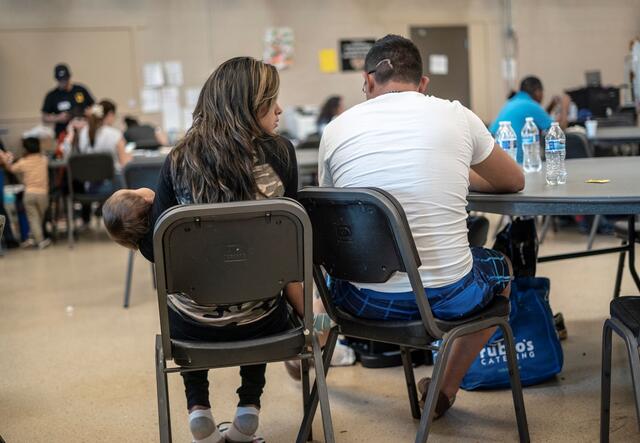
What is "Remain in Mexico?"
A policy from the first Trump administration called the Migrant Protection Protocols (MPP) or “Remain in Mexico” forced certain asylum seekers to wait out their U.S. immigration court cases in Mexico with little or no access to legal counsel.
In January 2025, the Trump administration announced that it would reimplement Remain in Mexico. In April 2025, a federal court temporarily blocked the program’s reintroduction while the case is litigated.
From January 2019 to June 2022, MPP impacted more than 75,000 asylum seekers, requiring them to wait out their U.S. court hearings in Mexico–mostly in northern border towns. There, they faced the often impossible expectations to gather evidence and prepare for a trial conducted in English while struggling to keep their families safe.
“U.S. border policies have continued to represent a challenge for asylum seekers to get to safety, while Mexico has also undertaken new actions to slow migration at both the northern and the southern border,” explains Rafael Velásquez, former country director for the IRC in Mexico.
“Mexico has certainly become one of the main recipients of asylum claims in recent years but the country is not necessarily an option for everyone.”
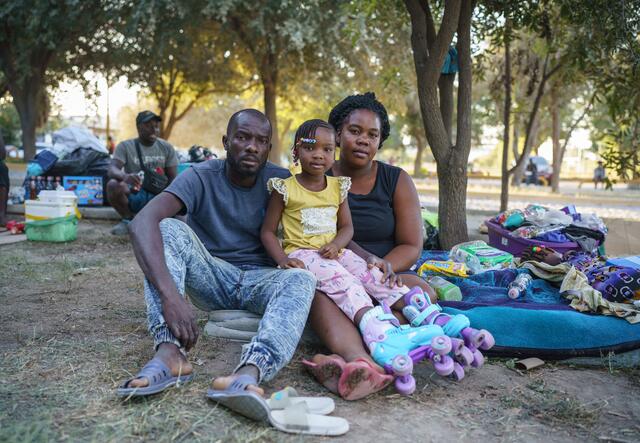
The impact of restrictive policies
Restrictive U.S. asylum policies force Mexico to fulfill growing humanitarian needs as asylum seekers wait, sometimes for years, to seek safety in the U.S. Families find themselves at risk of murder, rape, extortion and other violence. Organized criminal networks and human smugglers target desperate asylum seekers and profit from the border policies that deny them their rights. An IRC assessment found that 1 in 2 people displaced throughout Mexico suffered from protection risks, such as robbery, extortion and kidnapping. 26 percent reported that they were kidnapped at least once in Mexico, with many stating they were kidnapped multiple times.
“Here in Tijuana, we’re in exactly the same conditions that people are fleeing from, everything from cartels and violence to gang presence,” says Kathy Kruger, who works for IRC partner Casa del Migrante in Tijuana, Mexico. Local shelters and organizations like hers have made heroic efforts to help asylum seekers despite strained resources.
Language barriers and racism have made the situation particularly dangerous for Black asylum seekers, as they face discrimination and violence on their journey and at the border.
Where do asylum seekers in the U.S. come from?
A substantial number of asylum seekers are fleeing violence and persecution in the Americas, including Cuba, Haiti, Mexico, Nicaragua and Venezuela. Asylum seekers who have sought protection at the border also include people from Cameroon, China, Ethiopia, Eritrea, Iran and Russia. Afghans and people displaced by the war in Ukraine have also arrived at the U.S. southern border to seek asylum.
"Mixed migration through Mexico—usually onwards to the United States—has been a longstanding mechanism for people fleeing violence and conflict from the Caribbean and Central and South America,” explains Velásquez. “However, we have seen a particular increase in the number of asylum seekers from all over the world transiting through the country, including from places as distant as Asia, Africa and Europe."
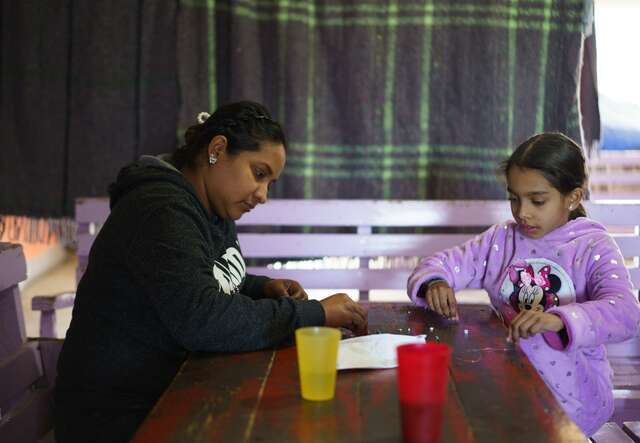
Our call to the Trump Administration
The U.S., like any other country, must respect the right to request humanitarian protection, as established by international and domestic law, for all those who seek safety from violence and persecution. The IRC urges Congress to ensure that the U.S. government continues to uphold its long, nonpartisan tradition of offering safety and welcome to the most vulnerable. We also advocate for supporting humanitarian efforts abroad to bring stability and hope to displaced people in crisis-affected countries, where the majority of refugees are hosted.
How does the IRC help asylum seekers?
The IRC provides critical support to asylum seekers in the U.S. and other countries in Latin America. Throughout the U.S., the IRC provides legal services, case management, reception services, medical evaluations and other support to asylum seekers in 24 offices.
In Latin America and the Caribbean, the IRC is responding to the needs of internally displaced people and asylum seekers by providing essential humanitarian services.
In recent years, we launched critical information platforms for asylum seekers and vulnerable communities: InfoPa’lante in Colombia, Ecuador and Peru; CuéntaNos in northern Central America and InfoDigna in Mexico are all part of our global Signpost project with partners including Mercy Corps, Google, Microsoft, Twilio, Cisco, Tripadvisor and Box. The digital platform includes an interactive map that connects asylum seekers and migrants to local shelters, health care providers and other services. An additional service, ImportaMi, serves unaccompanied children who recently arrived in the U.S.
How can I help asylum seekers?
Families fleeing danger have the legal right to seek asylum—but they face growing barriers. Your gift helps the IRC provide food, water, hygiene supplies and information to those in need. Stand with asylum seekers today.
Get connected: Follow our Instagram, LinkedIn, Facebook, Bluesky and X accounts.
Stay informed: Follow our coverage of U.S. news for a humanitarian perspective.
*Pseudonym used for privacy


